Hong Kong activists struggle to keep memory of Tiananmen alive under security law
Chinese military shot student protesters in Tiananmen Square 32 years ago.
Hong Kong feels more jittery than usual Friday as it marks the 32nd anniversary of the deadly Tiananmen crackdown -- the first since Beijing imposed a draconian national security law in the city last summer.
In a sign of the times, the city woke up to news that police had arrested activist Chow Hang-tung, the vice chairwoman of the group that organizes the annual Tiananmen vigil.
Police said Chow and a 20-year-old were detained Friday morning on suspicion of appealing to others to join a banned candlelight vigil at Victoria Park.
Suffice to say, the atmosphere in the area is tense.
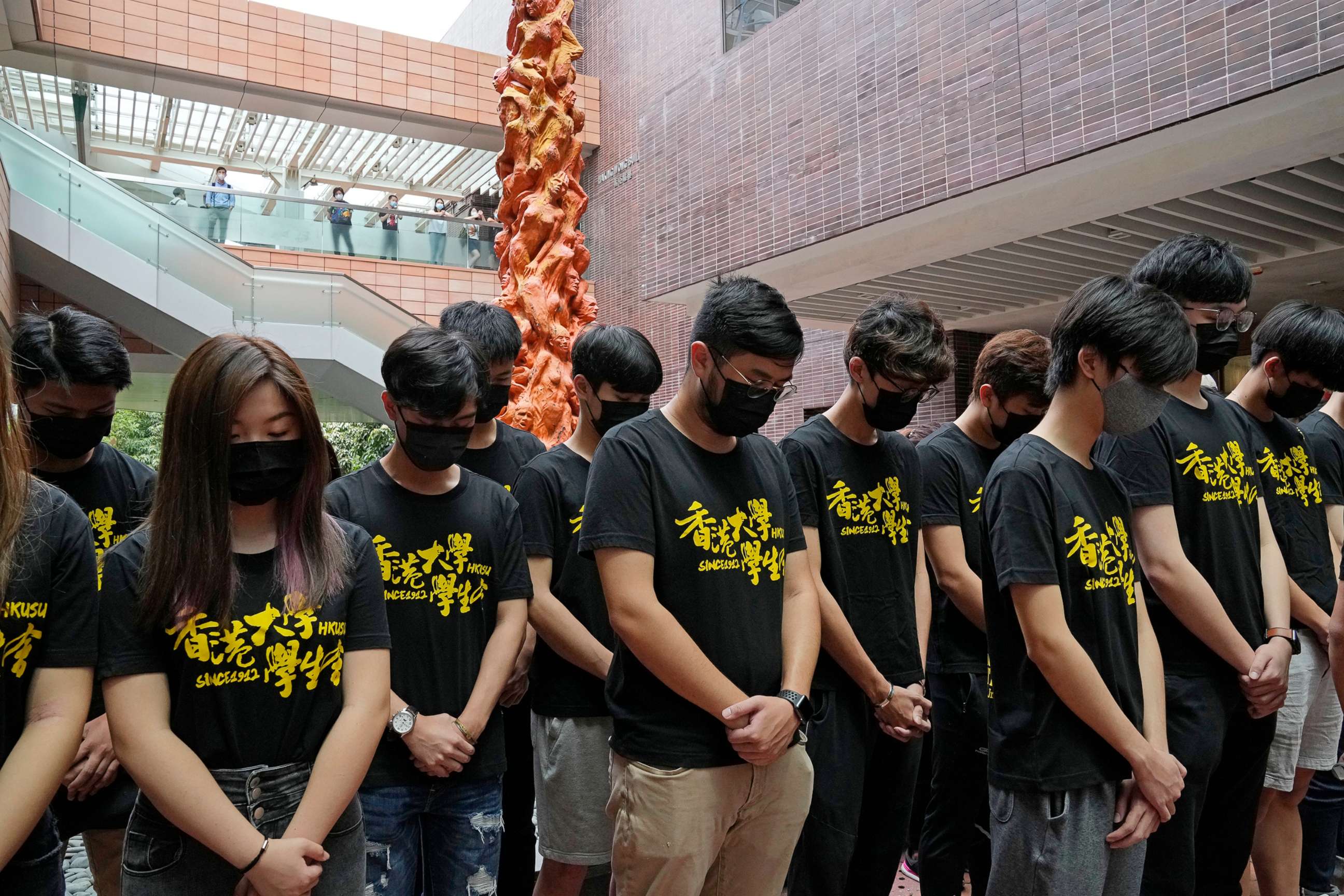
Police barricaded up the park Friday afternoon. 7,000 riot officers are on standby, and authorities have repeatedly warned that anyone caught taking part in an unauthorized gathering could be jailed for up to five years.
For a second year, the annual Tiananmen vigil was banned on pandemic grounds.
The city recorded just one new case of COVID-19 on Thursday and has had no untraceable cases for over a month.
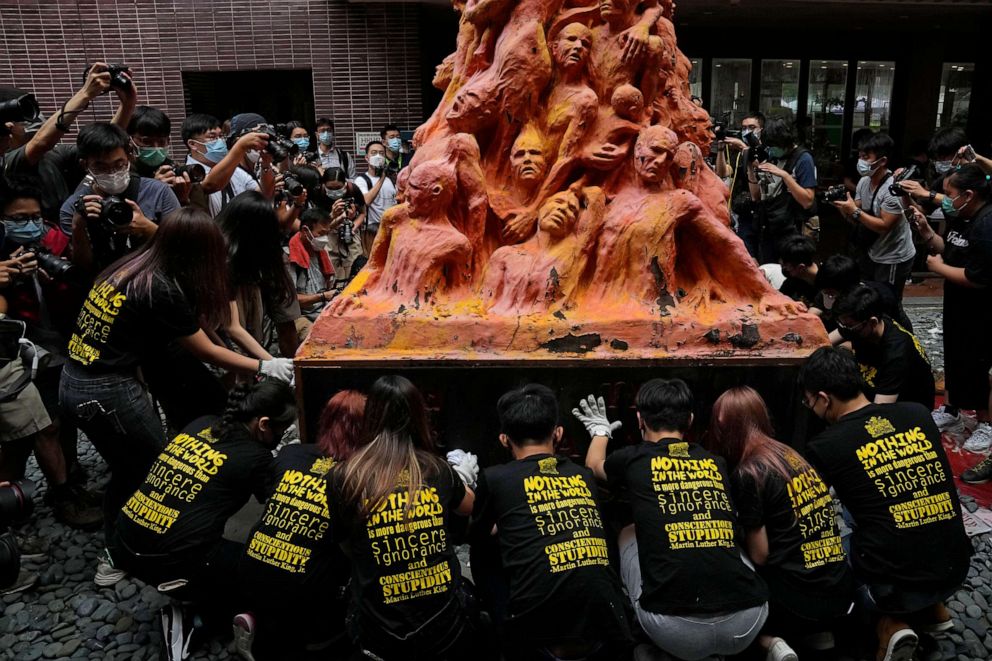
For Hong Kongers, June 4 is a deeply important time to remember when the Chinese military opened fire on student protesters in and around Tiananmen Square in 1989. The vigil is a tradition and normally draws in huge crowds. Victoria Park lights up with a sea of candles.
It's a solemn, reflective event, and a display of the city's once vibrant civil society and people power.
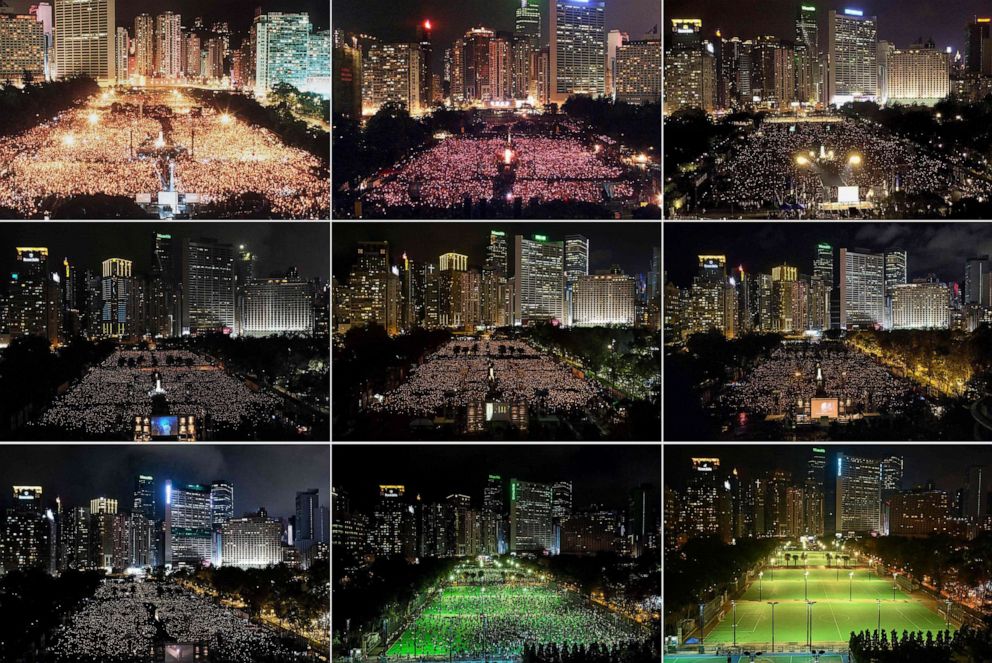
As one of the most sensitive days in China, the Chinese Communist Party has tried in earnest to scrub the event from history entirely. Any mention of 1989 is heavily censored.
There are now real fears the silencing is extending to Hong Kong and doubts are hanging over whether the only Tiananmen vigil on Chinese soil will ever be tolerated again.
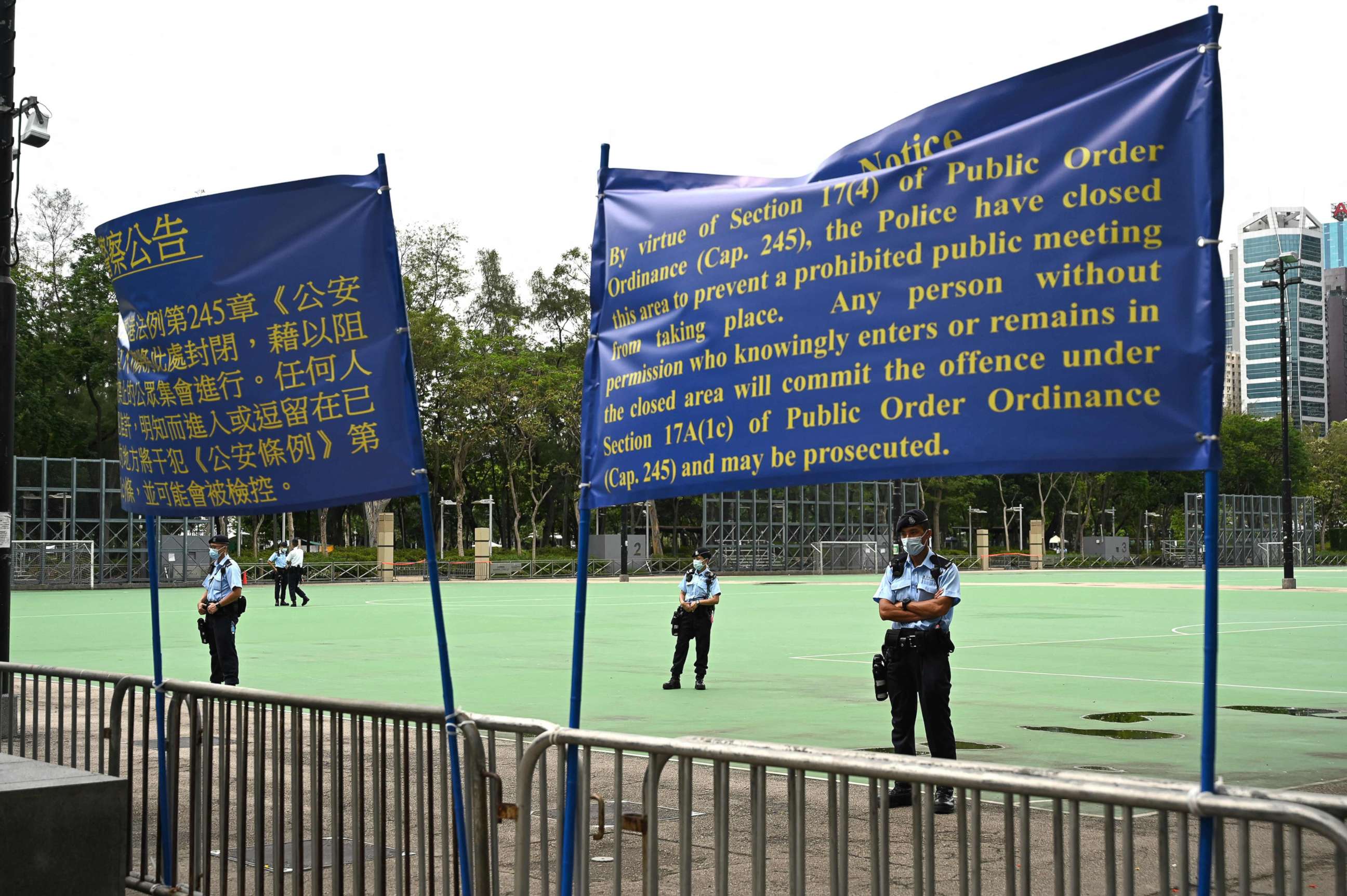
In 2019, 180,000 people gathered at the park, last year thousands turned out anyway despite pandemic restrictions. The events of Friday serve as a test for the limits of protest under the security law.
Hong Kong government advisor Ronny Tong told ABC that as long as activists don't call for an end to one-party rule, as they have done in the past, there should be no problem hosting vigils in the future.
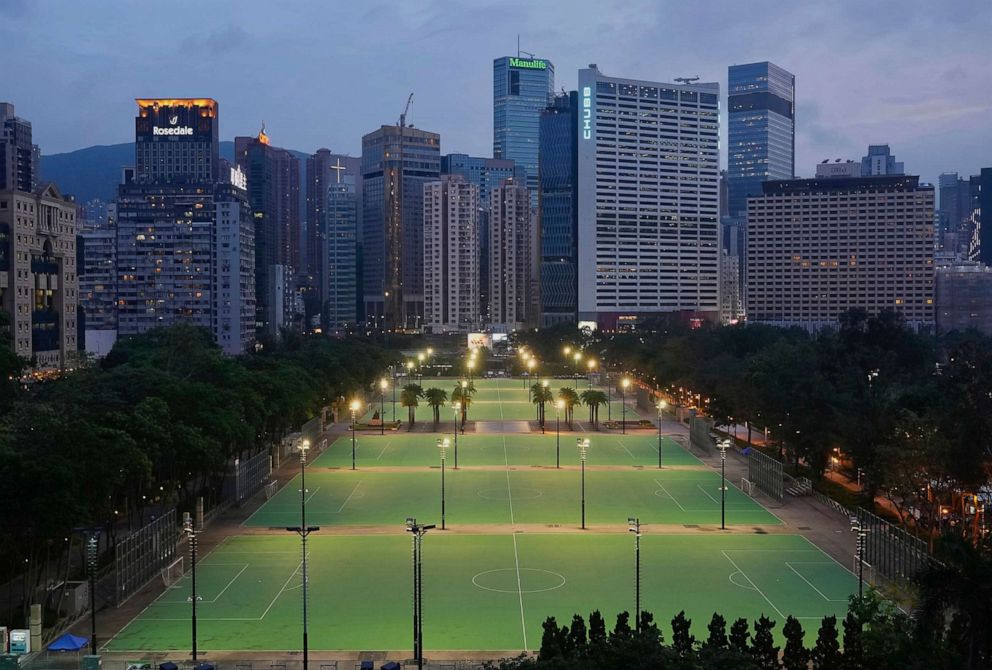
"If you're saying, 'I just want to go to Victoria Park to remember June 4th,' and you don't you don't advocate the downfall of any government or the downfall of the Communist Party, I don't see how we could infringe the law," Tong said.
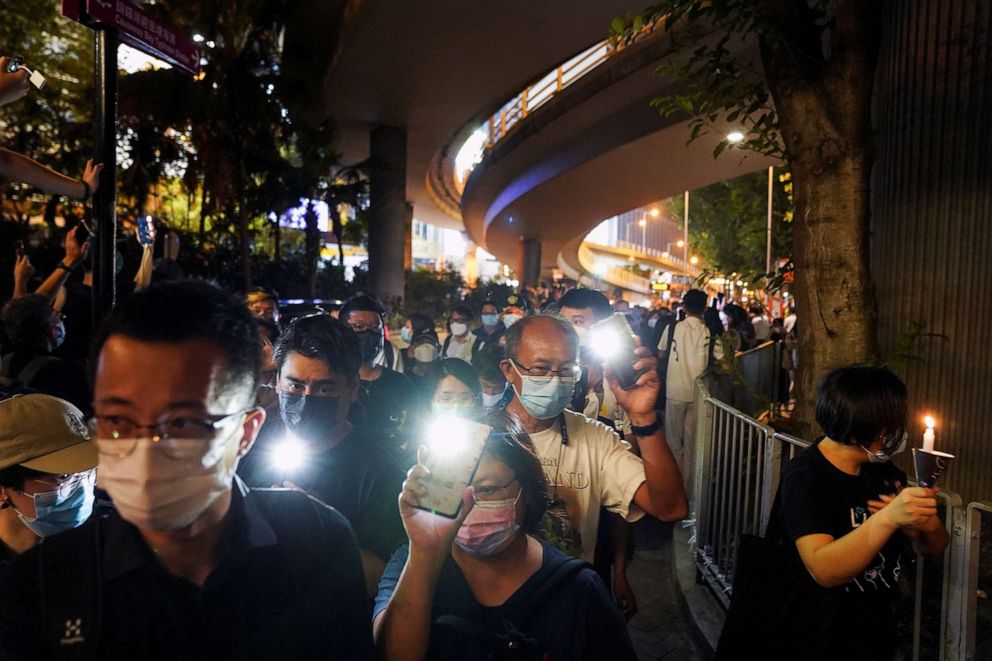
But Hong Kong has undergone a raft of changes since the security law was imposed. Most of the opposition is in jail, repeatedly inundated with legal cases. It's quite frankly hard to imagine how the vigil will ever return in its old form.
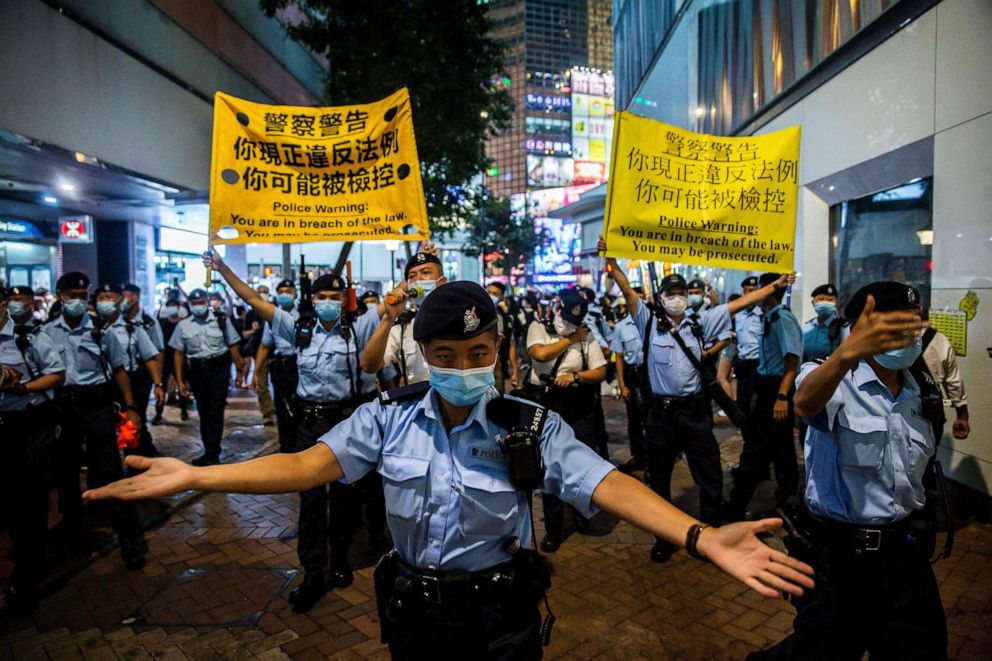
The city is lamenting what feels like a time past.




